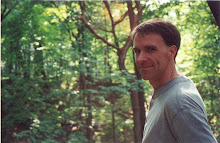Toledo, Ohio: Two on the Aisle "You will do better in Toledo" - Sign on the Valentine Building removed in 1959 due to deterioration
"You will do better in Toledo" - Sign on the Valentine Building removed in 1959 due to deterioration
Besides the scales, one of the most famous things in Toledo is Tony Packo's hot dog restaurant. The character Klinger (portrayed by Toledoan Jamie Farr) on the television show M*A*S*H made Packo's famous. In a town hit hard by the 1970s recession, Packo's became the city mascot.
Packo's lies on a corner along the road hugging the Maumee River in the traditionally Hungarian Birmingham neighborhood in East Toledo. If that sounds like a separate city, it's no accident. A local told me, "Toledo is really two cities divided by the river."
I arrived at Packo's at lunchtime. Fluorescent light muted by dark amber shades fell on deep red wood walls and tables, making it feel like a speakeasy. Exposed heating ducts punctured the lowered wood ceiling. One hanging lamp had written on it the name of local glassmaker Libbey-Owens-Ford. Cardboard cutouts of M*A*S*H characters hung by the blaring big-screen television in the middle of the room. The cast's signed buns graced the wall.
Legend has it that Burt Reynolds was in a show in town, and Nancy Packo invited him to the restaurant. When he showed up, she asked for his autograph but didn't have anything to sign. Reynolds suggested one of her buns. Celebrities passing through Toledo have been signing hot dog buns ever since. The walls are lined with wooden panels inset with oblong plastic bubbles protecting the buns. Bun signees include Zsa Zsa Gabor, Margaret Thatcher, and Big Bird. I didn't find any signed by painters, though Hopper-owner Steve Martin did sign one.
I bellied up to the bar and told the bartender about my project. She was a hefty woman, dark-skinned and world-weary, though only about 30. She pointed with her bar rag to a man at the end of the counter. "He's an artist, this man himself," she said, impressed by it.
A lanky, self-assured guy at the end of the bar was just finishing his beer and hot dog. He had moist blue eyes and a gray mustache the same color as his hair, which was pulled tight along his temples into a ponytail. I introduced myself, and he said his name was Bernie and he was a sculptor.
When I asked him whether people in Toledo were isolated, the bartender and a portly man in a business suit at the bar offered their  two cents first.
two cents first.
The bartender laughed, "Not from each other, they're not isolated. Not if you're from the area. everybody knows everybody else."
"I concur," said the portly man, strangely formal.
"Do they know your dirty laundry, too?" I asked.
"Certain things they know," he said darkly.
"It depends on if you have any," the bartender said.
"You should find out about our mayor," the other man said. "Did you see him on the TV get in that fight with that guy the other day." [The mayor, Carlton Finkbeiner, was on TV the night before I arrived, challenging a citizen to a fistfight because the person had a property that needed cleaning up.] "It's not the first time. When the residents near the airport complained of the plane noise, he wanted to move the deaf people there. He's very creative."
"So you're traveling around writing a book?" Bernie asked, wresting back the conversation. "Are you hitch hiking?"
"No. Driving."
"There used to be a time," he said wistfully. "I used to hitchhike all over the West. I never had a problem. But I sure wouldn't do it now."
"In Europe, it's still not that bad a thing to do," I noted.
"No. I don't think it'll ever get that bad over there. There's a different mentality there. Everybody there would know who Edward Hopper is. Ninety-nine point nine percent of the people in this town wouldn't know who Edward Hopper is. Toledo is a very conservative place. The average guy here is a hard-nose working guy: gets up, goes to work, comes home, raises a family.
"I actually just bought a book about Hopper," he continued, "a book of his paintings. Edward Hopper was always to me The Grapes of Wrath. But I don't think it's like that anymore. I think the world's pretty wide open these days."
"So what is the art scene like in Toledo?" I asked him.
"My big gripe about the arts in Toledo is that the powers that be and the Arts Commission refuse to buy public art from artists here in Toledo. I had worked internationally before I moved back here. I moved back here, and I can't get an art commission. The shame of it is that that's what nurtures a city's own background or a city's own people. Everything they do here has nothing to do with the city's background or history. And so the talent languishes.
"What kind of sculpture do you do?" I wondered.
"My studio's right down the street if you're interested."
"Well, if you can take a long lunch break."
"Yeah," he said and chuckled. "I'm the boss."
20090124
133 Toledo, OH: Two on the Aisle
Subscribe to:
Post Comments (Atom)




No comments:
Post a Comment